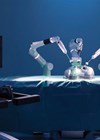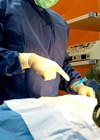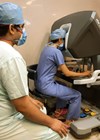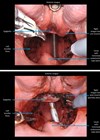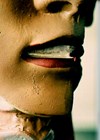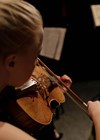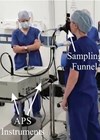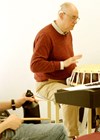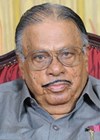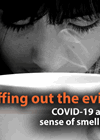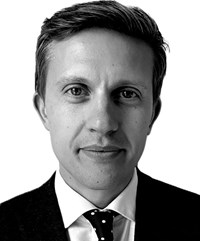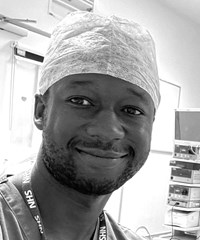ENT features archive for 2021
Emerging robotic systems for head and neck surgery
As of December 2020, seven robotic surgical systems have received approval for use in different jurisdictions, and many more task-specific robots are in the pipeline. Jack Faulkner takes us through what’s on the horizon for head and neck cancer surgery....
Detecting cancer margins during robotic head and neck cancer surgery using ambient mass spectrometry
We have known about altered metabolism in cancer cells since Otto Warburg described it 97 years ago. But can we take advantage of this knowledge in curing cancer? Jim Higginson explains the value of smoke generated during cancer surgery. The...
Setting up a robotic surgical practice: view from India
Transoral robotic surgery has an established role in head and neck cancer surgery. But how easy is it to set up a service in a resource-constrained environment? Gouri Pantvaidya and Ameya Pai give us a view from the Indian subcontinent....
Robotic surgery for squamous cell cancer: the new frontiers
Although the da Vinci platform was FDA approved for early-stage oropharyngeal cancers, the indications have expanded. In this article, John Hardman explains how surgeons, with greater understanding of the strengths and limitations of robotic surgery, have systematically set out to...
Head and neck robotic surgery – considerations for the surgical trainee
In 2021, training in head and neck cancer surgery would be incomplete without some robotic resections under the belt. Henry Zhang explains how he did it and outlines the options available. With a wide range of applications in both benign...
Otological problems in musicians
Musicians are understandably anxious about their hearing, and recent high-profile cases of noise-related hearing loss have resulted in huge changes in the music industry. Chris Aldren (otologist and violinist) explains. In the recent Oscar-winning movie, Sound of Metal, heavy metal...
Aerosol research and performance
Is singing safe? This was a question asked around the world at the start of the pandemic in early 2020. Natalie Watson and Chris Orton tell us about a rapidly-convened research group that led to profound changes in UK Government...
Treating voice disorders in singers
There are few ENT surgeons who have as much insight into singers’ problems as Nick Gibbins. A good knowledge of working patterns, repertoire and the physiology of ‘vocal athletes’ is essential. He shares a few thoughts with us. When deciding...
Supporting music listening through cochlear implant services – experience from a UK adult clinic on supporting musical engagement
The perception and enjoyment of music is central to many people’s lives. Harriet Crook (herself a cochlear implant recipient) tells us about important work in this area for people using hearing aids and CIs. There is now a wealth of...
Reflux – diagnostic tools and special considerations in singers
Depending on your point of view, laryngopharyngeal reflux (LPR) is either ubiquitous or is over-diagnosed. Are singers more prone to LPR? What are the best tests? Mark Watson and Jane Shaw tell us more. Laryngopharyngeal reflux (LPR: the backflow of...
OBITUARY: Prof Shanmugam Kameswaran (1923-2021)
Professor Shanmugam Kameswaran was born in 1923 and did his MBBS and MS at Madras Medical College, India, under PV Cherian who later became the Governor of Maharashtra, India. He worked as his assistant and left for the UK in...
Sniffing out the evidence – COVID-19 and loss of sense of smell and taste
Louis Pasteur once observed: “In the fields of observation chance favors only the prepared mind.” Professor Hopkins was certainly prepared when a few anecdotes of smell problems started to accumulate early in the pandemic’s course. Post-viral olfactory loss is nothing...


